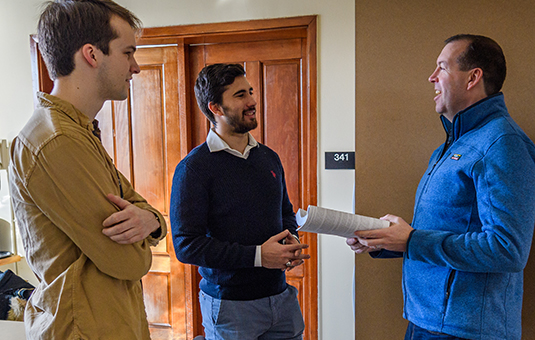Computer Science
Our faculty are connected to the latest trends in computing practices and research. Research interests range from classical and quantum computing to human-computer interaction to assistive technology to artificial intelligence and speech recognition, and so much more.
Submissions from 1995
Inferring Finite Automata with Stochastic Output Functions and an Application to Map Learning, Thomas Dean, Dana Angluin, Kenneth Basye, Sean Engelson, Leslie Kaelbling, Evangelos Kokkevis, and Oded Maron
A lower bound for monotone perceptrons, F. Green
The Power of the Middle Bit of a #P Function, F. Green, J. Kobler, K. W. Regan, T. Schwentick, and J. Toran
Lower bounds for depth-three circuits with equals and mod-gates, Frederic Green
Submissions from 1993
Graph-based mapping by mobile robots, Kenneth J. Basye
On the power of deterministic reductions to C=P, Frederic Green
Submissions from 1992
An Automata-based Approach to Robotic Map Learning, Kenneth Basye
The power of the middle bit, Frederic Green, Johannes Kobler, and Jacobo Toran
Submissions from 1991
An oracle separating ΘP from PPPH, Frederic Green



